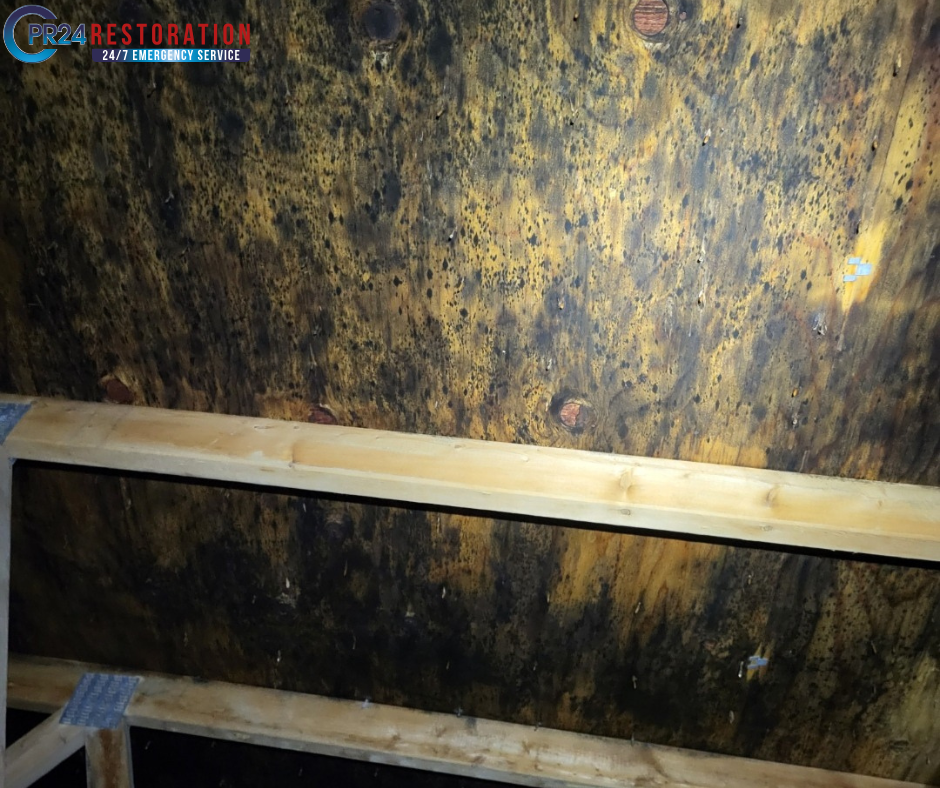10 Warning Signs of Mold Toxicity Toronto
Mold is a common yet often overlooked issue that can significantly impact health and well-being. If you’re in the GTA, you should be aware of the 10 Warning Signs of Mold Toxicity Toronto. This fungus thrives in damp, poorly ventilated areas, making homes, workplaces, and schools prime locations for its growth. Mold is a natural part of the environment. However, some types can make harmful toxins called mycotoxins. These toxins can cause various health problems. Understanding the warning signs of mold toxicity is crucial for early detection and intervention. Below, we explore ten key symptoms that may indicate mold exposure and toxicity. Understanding Mold Toxicity Toronto 10 Warning Signs of Mold Toxicity Toronto symptoms happen when people breathe in mold spores or mycotoxins. This can cause many health problems. The severity of symptoms can vary a lot from person to person. This depends on factors like sensitivity, exposure time, and overall health. Toxic symptoms from mold may include respiratory problems, skin irritation, fatigue, and neurological issues. Black mold symptoms, especially from Stachybotrys chartarum, can be extremely serious. They may cause long-lasting coughing, eye irritation, and even memory issues. Toxic mold exposure signs are often missed. They can include headaches, sinus congestion, and a weak immune system. Knowing that toxic mold symptoms may not appear right away is important. Exposure can make them worse over time. Mold comes in different types, such as allergenic, toxigenic, and pathogenic molds. Each type has different risks for human health. The Role of Mycotoxins Toronto Mycotoxins are toxic compounds produced by certain types of mold. When inhaled or ingested, these substances can cause serious health issues by triggering inflammatory responses in the body. Mold toxicity symptoms vary but may include respiratory issues, fatigue, and cognitive difficulties. If you’re wondering how to know if mold is making you sick, pay close attention to persistent symptoms that don’t improve with time. Mold often grows in damp and poorly ventilated areas. This includes basements, bathrooms, and kitchens. It can thrive on water-damaged materials like drywall, carpets, and insulation. Health effects of mold can be especially severe for individuals with allergies or weakened immune systems. Research shows that mycotoxin exposure symptoms may include brain fog, digestive issues, or even mood disturbances. If you are wondering, “Can mold make you sick?” the answer is yes. Finding and removing mold quickly is important to protect your health. Vulnerable Populations Toronto Certain groups are more susceptible to mold toxicity, including individuals with weakened immune systems, respiratory conditions, or allergies. Children and older adults are at higher risk. Watching for signs of mold exposure in these groups is important. 1. Respiratory Issues One of the most common signs of mold toxicity is respiratory distress. Individuals may experience symptoms such as: Understanding Respiratory Symptoms Toronto Mold spores can irritate the lining of the respiratory system, leading to inflammation and increased mucus production. This can exacerbate existing conditions like asthma or allergies, making it crucial to address mold issues promptly. 2. Allergic Reactions Mold exposure can trigger allergic reactions in sensitive individuals. Common allergic symptoms include: The Importance of Allergy Testing If you suspect mold is causing allergic reactions, consider consulting an allergist for testing. Identifying specific mold allergies can help guide treatment and remediation efforts. 3. Cognitive Difficulties 10 Warning Signs of Mold Toxicity Toronto can also affect cognitive function, leading to symptoms such as: The Neurological Impact of Mold Toronto Research suggests that mycotoxins can interfere with neurotransmitter function, leading to cognitive impairments. Addressing mold exposure is essential for restoring mental clarity and emotional well-being. 4. Fatigue and Weakness Chronic fatigue is another common symptom associated with mold toxicity. Individuals may feel: Understanding Fatigue Fatigue related to mold toxicity may stem from the body’s immune response to mycotoxins. The energy required to combat inflammation can leave individuals feeling drained and exhausted. 5. Digestive Issues Mold exposure can also lead to gastrointestinal symptoms, including: The Gut-Mold Connection The gut microbiome plays a crucial role in overall health, and mold exposure can disrupt this balance. Addressing mold toxicity may help restore digestive health and improve symptoms. 6. Skin Irritations Skin reactions are common among individuals exposed to mold. Symptoms may include: Managing Skin Reactions If you notice skin irritations that coincide with mold exposure, consider consulting a dermatologist for evaluation and treatment options. 7. Headaches and Migraines Frequent headaches or migraines can be linked to mold toxicity. Symptoms may include: The Link Between Mold and Headaches Mold spores can release volatile organic compounds (VOCs) that may trigger headaches in sensitive individuals. Identifying and addressing mold sources can help alleviate these symptoms. 8. Joint and Muscle Pain Mold toxicity can lead to musculoskeletal symptoms, including: Understanding Musculoskeletal Symptoms Inflammation caused by mold exposure can contribute to joint and muscle pain. Addressing mold toxicity is essential for managing these symptoms effectively. 9. Unexplained Weight Changes Mold exposure can also impact weight, leading to: The Hormonal Connection Mold toxins can disrupt hormonal balance, leading to changes in metabolism and appetite regulation. Addressing mold exposure may help restore healthy weight management. 10. Unpleasant Odours A musty or damp smell in your home can indicate hidden mold growth. This odour may come with: The Importance of Mold Inspection Toronto If you notice persistent musty odours or visible mold growth, consider scheduling our professional mold inspection. Early detection and remediation are crucial for protecting your health. Toxic Symptoms from Mold can range from mild to severe, depending on the type and amount of mold exposure. Toxic mold symptoms may include headaches, fatigue, and respiratory issues, with some individuals experiencing more intense reactions. Many people ask how toxic black mold is. The answer is that toxic black mold, especially Stachybotrys chartarum, makes mycotoxins. These mycotoxins can cause serious health problems. If you worry about mold exposure, a mold toxicity test can help find harmful molds in your home. This lets you take quick action to protect your health. Recognizing the warning signs of mold toxicity is essential for maintaining a safe








